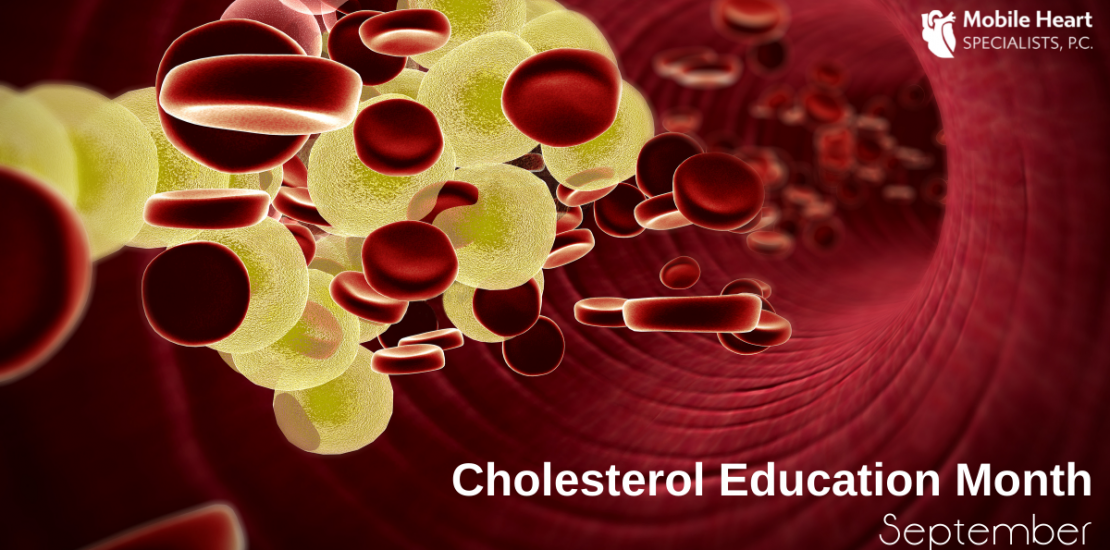- August 29, 2021
- Posted by: sabrina@salexanderconsulting.com
- Category: News


According to the CDC, nearly 38% of Americans have high cholesterol. This means that almost half of the U.S. population is at high risk for heart disease and stroke, two of the country’s leading causes of death.
In September, we recognize National Cholesterol Education Month in order to bring awareness to the effects of high cholesterol and what it can do to your body.
Read on to learn more about cholesterol and if you’re at risk for heart-related complications.
What is Cholesterol?
We need cholesterol in our bodies to build cells and make vitamins and other hormones. But, having too much cholesterol can cause issues and complications.
Your body gets cholesterol from two sources: your liver and food from animals. Meat and dairy products all contain cholesterol. And, because these foods are high in saturated and trans fat, they cause your liver to make more cholesterol than it typically would. Oils also contain saturated fat and can cause similar overproduction of cholesterol.
Unfortunately, high cholesterol shows no signs or symptoms, so the only way to know your levels is to have them checked.
In this video from the American Heart Association, you’ll find a fantastic, easy-to-digest explanation of cholesterol.
What Makes Cholesterol “Bad”?
There are two types of cholesterol: LDL and HDL.
LDL, low density lipoprotein, is the “bad” cholesterol. It can build up inside of your arteries leading to blood clots and strokes. High LDL is primarily caused by an unhealthy diet.
HDL, high density lipoprotein, is the “good” cholesterol. It carries LDL away from your arteries and back to your liver where it’s broken down and processed.
Triglycerides and Cholesterol
Triglycerides are the most common type of fat in your body. [Source: American Heart Association] They’re made by both food and your body. Typically, if you have high triglycerides you will also have a high cholesterol level (high LDL and low HDL). Factors such as weight, alcohol consumption, diabetes, kidney disease and more contribute to high triglyceride levels. High levels of triglycerides also contribute to heart disease and other health issues.
How to Improve Cholesterol
While high cholesterol can be hereditary, there are some lifestyle changes you can make to improve your cholesterol levels. These include reducing saturated and trans fats, eating foods rich in omega-3, exercise, not smoking, drinking alcohol only in moderation and losing weight (if recommended by a physician).
If you have high cholesterol and believe you are at risk for further heart-related complications, book an appointment with one of our specialists today.
Resources:
American Heart Association
Mayo Clinic
Center for Disease Control and Prevention
